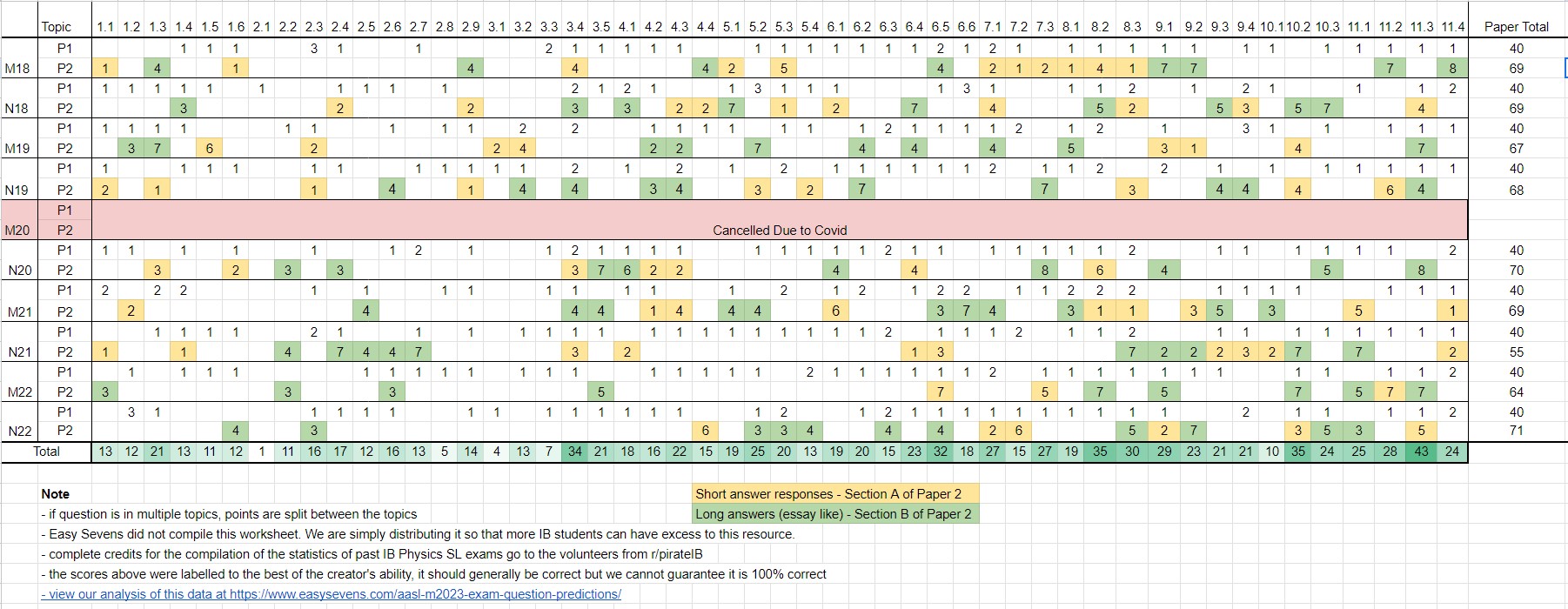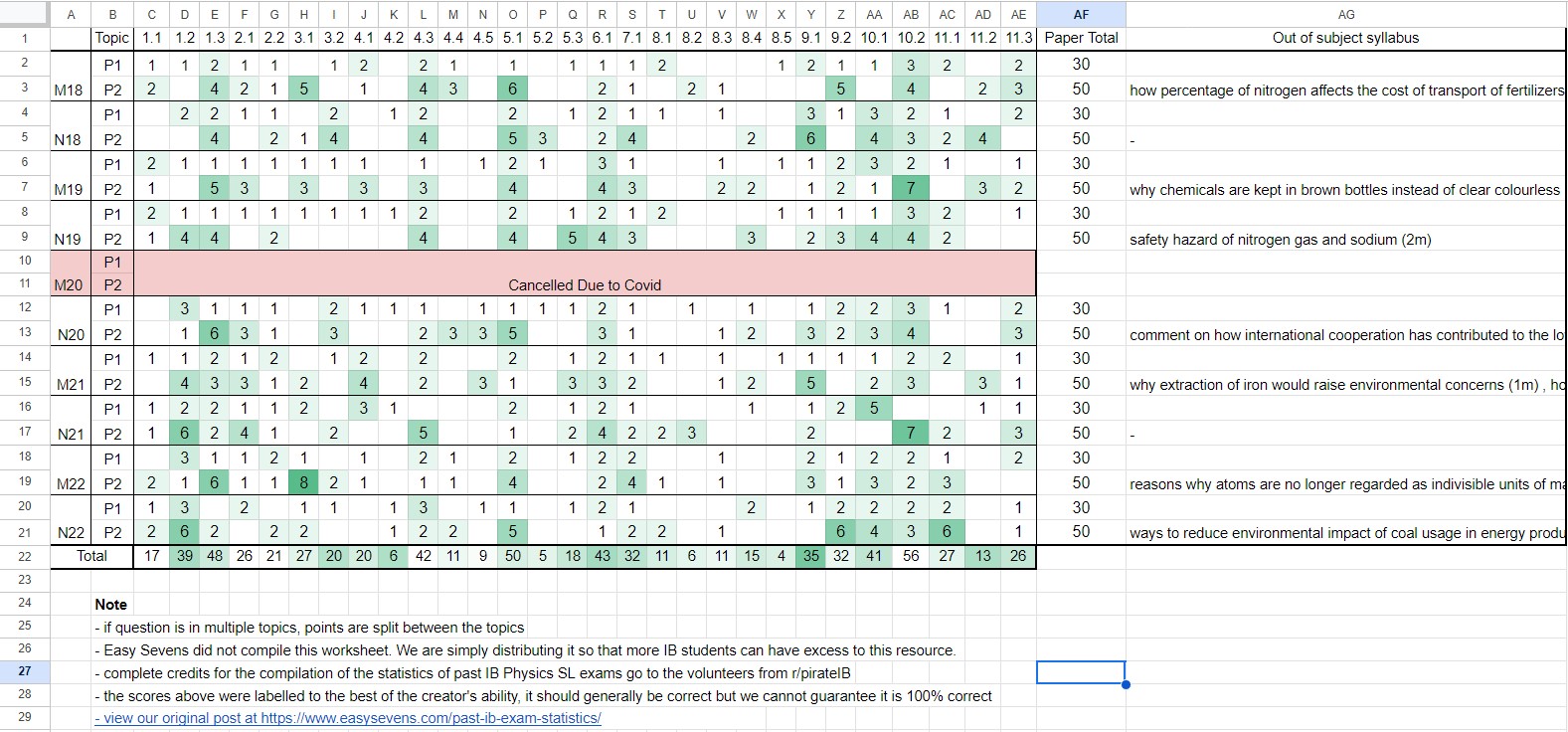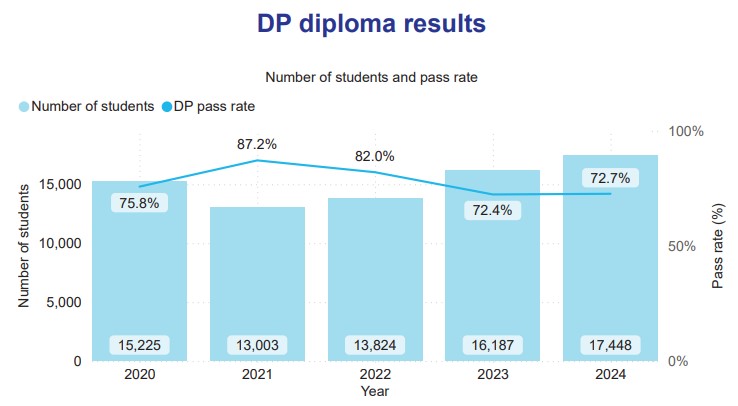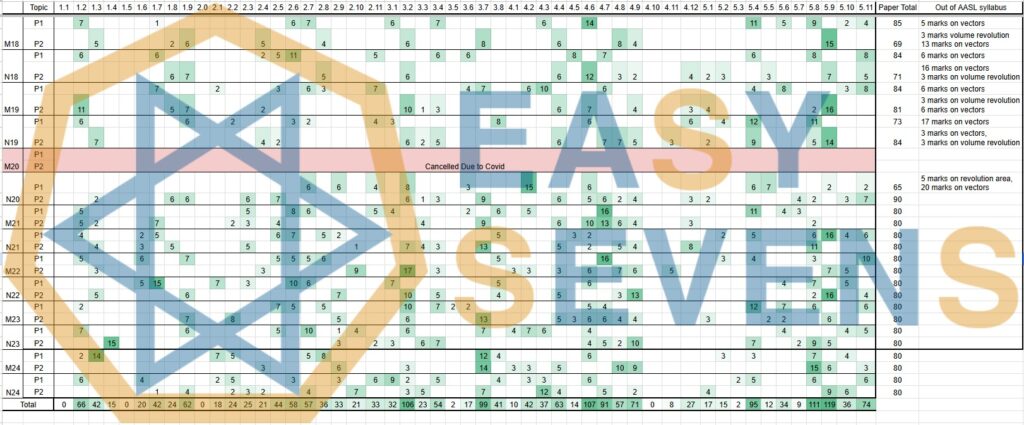The International Baccalaureate (IB) is a highly respected educational program that provides students with a challenging curriculum and global perspectives. The IB program includes six subject areas, including Language and Literature, Language Acquisition, Individuals and Societies, Sciences, Mathematics, and the Arts. Students are evaluated through a combination of coursework, exams, and other assessment tasks. As IB exams are an essential part of the program, students and teachers often seek guidance on what to expect from the exams. This article aims to provide insights into how past IB exam statistics can be used to predict the IB exam questions, helping students prepare effectively for their exams.
Open Source Project – Help from Volunteers of r/pirateIB
Following the success of our IB Math AASL exam statistics, we have been receiving many inquiries on the statistics of other IB subjects as well. The process of compiling such statistic requires a huge of amount of time which we don’t have, hence we have open sourced this project and are happy to announce that we have found volunteers from r/pirateIB. Again it is worth noting that we are in no way affiliated with the sub reddit and can’t be responsible for the accuracy of the statistics that the volunteers compiled. Apart from the AASL statistics which our IB Math tutor at here at Easy Sevens made, all other worksheets in the linked spreadsheet were created by this amazing team of volunteers!
View the full spreadsheet here: https://bit.ly/41zPIKu
If you would like to contribute to this statistics as well, feel free to comment in this Reddit thread or contact us directly!
Understanding Exam Predictions Based on Statistics
The process of predicting exam questions based on previous years’ statistics involves analyzing data from previous years’ exams, including topics and question types. The aim is to identify patterns in the questions asked over the years to make informed predictions about the types of questions that are likely to appear in the current year’s exam.
By analyzing the past years’ exams, teachers can identify patterns in the types of questions that appear regularly, allowing them to help students prepare better by focusing on those topics. Exam predictions based on previous years’ statistics are not an exact science, but they can provide a valuable insight into the types of questions that are likely to be asked.
How Exam Predictions Based on Statistics Can Help Students
Exam predictions based on previous years’ statistics can help students in several ways, including:
Focused preparation: Students can use exam predictions to focus their preparation on the topics that are most likely to appear in the exams. This can help them make the most of their study time and avoid wasting time on topics that are less likely to be tested.
Reduced stress: When students have a good idea of what to expect in the exam, they are likely to feel less stressed and more confident. This can help them perform better in the exam and achieve better results.
Better time management: When students know what to expect in the exam, they can plan their time more effectively. This can help them allocate sufficient time to each topic and ensure that they are fully prepared for the exam.
How Exam Predictions Based on Statistics are Made
Exam predictions based on statistics involve analyzing the patterns in previous years’ exams to identify the types of questions that are likely to appear in the current year’s exam. The process involves several steps, including:
Collecting data: The first step in making exam predictions is to collect data from previous years’ exams. This data includes the topics covered, the types of questions asked, and the level of difficulty of each question.
Identifying patterns: After collecting the data, teachers analyze it to identify patterns in the types of questions asked over the years. They look for topics that appear regularly and the types of questions that are commonly asked.
Making predictions: Once the patterns have been identified, teachers can make predictions about the types of questions that are likely to appear in the current year’s exam. They can advise students on which topics to focus on and the types of questions that they are likely to encounter in the exam.
Conclusion
Exam predictions based on previous years’ statistics can be a valuable tool for students and teachers preparing for the IB exam. By analyzing data from previous years’ exams, teachers can identify patterns in the types of questions asked, helping students prepare more effectively for the exam. However, students should not rely solely on exam predictions and should ensure that they are fully prepared for all topics in the exam. With the right preparation and focus, students can achieve excellent results in the IB exam and set themselves up for future success.
Frequently Asked Questions (FAQs)
Exam predictions based on previous years’ statistics are not always accurate, but they can provide valuable insights into the types of questions that are likely to appear in the exam. Students should not rely solely on exam predictions and should ensure that they are fully prepared for all topics
No, exam predictions are intended to help students prepare for the exam, not to cheat. The IB takes cheating very seriously and has measures in place to prevent it, including strict exam regulations and protocols.
Yes, exam predictions can be applied to all subjects in the IB program. However, the level of accuracy may vary depending on the subject and the availability of data from previous years’ exams.
Students can use exam predictions to focus their preparation on the topics that are most likely to appear in the exam. They can also practice answering the types of questions that are commonly asked to build their confidence and improve their performance.
No, exam predictions are intended to supplement studying, not to replace it. Students should use exam predictions as a guide to focus their preparation but should ensure that they are fully prepared for all topics in the exam.





